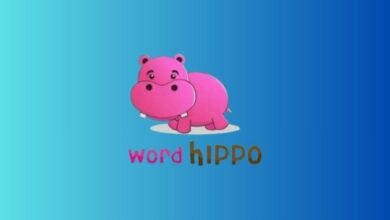
In a fast-paced world, the quest for knowledge never ends. As the demands of various industries evolve, so too must our skills. Enter continuing education, a pathway to personal and professional development that opens doors to new opportunities. Let’s explore the significance of continuing education and how it can be a game-changer for everyone.
1. The Importance of Lifelong Learning
Embarking on a journey of lifelong learning is not just a choice; it’s a necessity. In a world where information evolves rapidly, staying static can be detrimental. Continuous education ensures that you remain adaptable and open to new ideas.
2. Understanding Continuing Education
What exactly is continuing education, and how does it differ from traditional learning? Unlike formal education, which often concludes after obtaining a degree, continuing education is an ongoing process of acquiring knowledge and skills throughout one’s career.
3. Advantages Beyond the Classroom
The benefits of continuing education extend far beyond the confines of a classroom. It sharpens critical thinking, fosters creativity, and nurtures a passion for learning, transforming individuals into well-rounded professionals.
4. Tailoring Learning to Your Schedule
One of the beauties of continuing education is its flexibility. Whether you’re a full-time professional or a parent, there are options tailored to fit your schedule. This flexibility allows you to balance your commitments while pursuing personal growth.
5. The Role of Online Courses in Continuing Education
In the digital age, online courses have revolutionized how we learn. These courses provide accessibility, allowing individuals to acquire new skills from the comfort of their homes. The virtual classroom erases geographical boundaries, making education accessible to all.
6. Industry Recognition and Career Advancement
Continuing education is not just about acquiring knowledge; it’s a strategic move for career advancement. Employers value individuals who invest in their development, often leading to promotions and increased responsibilities.
7. Breaking Down Financial Barriers
Contrary to popular belief, continuing education doesn’t have to break the bank. Numerous affordable options, including free courses and scholarships, make it feasible for individuals from all financial backgrounds to pursue further education.
8. Building a Personalized Learning Plan
Tailoring education to your needs ensures maximum impact. Create a personalized learning plan by identifying your strengths, weaknesses, and career goals. This approach guarantees that you’re investing time and effort in areas crucial to your success.
9. Staying Relevant in a Dynamic Job Market
The job market is ever-evolving, and staying relevant is paramount. Continuing education equips you with the latest industry trends, ensuring that you’re not just keeping up but staying ahead in your professional journey.
10. Challenges and How to Overcome Them
While the benefits are immense, challenges in continuing education do exist. Overcoming obstacles such as time constraints and self-doubt requires resilience and a proactive approach. Recognize these challenges as part of the learning process.
11. Networking Opportunities Through Continuing Education
Education is not just about textbooks; it’s about people. Continuing education opens doors to a network of like-minded individuals, creating opportunities for collaboration and knowledge exchange. Networking becomes an integral part of your educational journey.
12. Balancing Work, Life, and Education
Maintaining a balance between work, personal life, and education can be challenging. However, it’s not impossible. Effective time management and setting realistic goals are key to ensuring that education enhances, rather than hinders, your overall well-being.
13. How Employers View Continuing Education
Employers recognize the value of continuous learners. Highlighting your commitment to ongoing education on your resume can set you apart from other candidates. It showcases not just your skills but also your dedication to personal and professional growth.
14. Measuring Success in Continuing Education
Success in continuing education is not solely determined by grades. It’s about applying what you’ve learned to real-life situations, experiencing personal and professional growth, and finding fulfillment in your journey.
15. Conclusion: Embracing a Future of Continuous Learning
In conclusion, continuing education is a powerful tool for personal empowerment and professional advancement. Embrace the opportunities it presents, tailor your learning journey, and witness the transformative impact it can have on your life.
FAQs (Frequently Asked Questions)
Q1: How can I find time for continuing education in my busy schedule? A1: Prioritize your commitments, create a schedule, and dedicate specific time slots for learning. Consistency is key.
Q2: Are online courses as effective as traditional classroom learning? A2: Yes, online courses can be equally effective, offering flexibility and accessibility without compromising educational quality.
Q3: Will employers value continuing education on my resume? A3: Absolutely. Employers recognize the dedication and adaptability that continuous learners bring to the table.
Q4: Can I pursue continuing education without a significant financial investment? A4: Yes, many affordable and free options make continuing education accessible to individuals with various financial backgrounds.
Q5: How do I measure the success of my continuing education journey? A5: Success is measured not just by grades but by the practical application of knowledge, personal growth, and career advancement.
Embark on your journey of continuous learning today, and watch as new horizons unfold in your personal and professional life.


